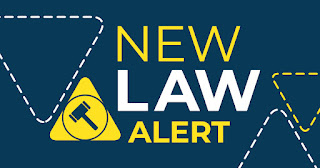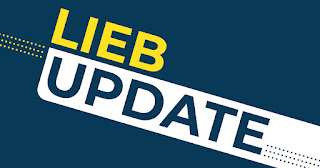Business owners looking to their commercial policies for business interruption and loss of income coverage due to COVID-19 have likely run into a giant roadblock - an exclusion of loss due to virus or bacteria. Many insurers added these special endorsements to commercial policies after the SARS outbreak in the early 2000s, and yours probably looks something like this:

We will not pay for loss or damage caused by or resulting from any virus, bacterium or other micro-organism that induces or is capable of inducing physical distress, illness or disease.
These virus exclusions have led practitioners like myself scratching our heads for novel legal theories to find coverage where coverage is expressly denied. The New York State Assembly has taken notice and is trying to solve this problem for us with ASSEMBLY BILL A10226A.
What Does The Bill Do?
The stated purpose of the bill is to "hold harmless businesses who currently hold business interruption insurance, for losses sustained as a result of the current COVID-19 health emergency, but for which no such coverage is currently offered." It accomplishes this by construing all policies insuring against loss of use and occupancy and business interruption "to include among the covered perils under that policy, coverage for business interruption during a period of a declared state emergency due to the coronavirus disease 2019 (COVID-19) pandemic." It also declares all virus exclusions null and void, and extends this special coverage for the duration of New York's declared state emergency. The new law would only apply to insureds with less than 250 full-time employees.
To offset the costs, the bill allows insurers paying claims to apply for reimbursement from the Department of Financial Services who will collect funding for the reimbursements from other insurers, thus spreading the cost amongst all insurers except life and health (a cost which presumably will be passed onto insureds as a surcharge).
Most importantly, the bill is retroactive - deemed effective March 7, 2020 and applying to policies in effect on that date.
What Should You Do Right Now?
Business owners should have their full policy examined to see: (1) if they have business interruption coverage; and (2) whether there is a virus exemption. While other exemptions may preclude coverage, these are the threshold questions. Retaining an attorney to evaluate your policy and to submit a claim is often a good investment because claims can be denied if the wrong language or explanation for your loss is given to your insurer, or if the claim is submitted in an untimely or improper manner. Talking yourself out of a covered claim because you didn't know what was covered and what wasn't is an avoidable mistake.
If your insurer denies coverage that you think you are entitled to, hiring an attorney to pursue a claim against your insurer is an appropriate next step. Federal Courts are still accepting new filings, and the Department of Financial Services is still accepting complaints from insureds.
Policy holders with virus exemptions should contact their local assemblymember and/or state senator to express support for the proposed legislation. The New York State Senate website even lets you voice your support for the bill digitally clicking the check mark on the right side of THIS WEBSITE.
Keep your eye on our blog for status updates on this bill. If it passes and you benefit from its changes, it may make sense to submit a claim, in which case you should hire an attorney who can give you the best shot at meeting eligibility requirements.
Is This Even Constitutional?
Expect insurers to push back on this bill because it will create, in their minds, an unfunded liability that was not bargained for when they set insurance premiums for policies in effect on March 7, 2020. Article 1 of the United States Constitution provides that "No State shall... pass any... Law impairing the Obligation of Contracts". The Fifth and Fourteenth Amendments to the United States Constitution prohibit the taking of property without due process of law. In the past insurers have turned to both arguments when objecting to legislation that retroactively imposed new obligations.
Long story short, the United States Supreme Court has held that the constitution permits contractual interference pursuant to a balancing test that evaluates (1) the extent of the interference, (2) the historic regulation of the industry affected by the law, (3) the legitimate public purpose for the law, and (4) whether the law is appropriate given the stated public purpose, with special deference given to laws addressing emergencies. Home Building & Loan Association v. Blaisdell, 290 US 398 (1934); Energy Reserves Group, Inc. v. Kansas Power and Light Co., 459 US 400 (1983). Litigation is inevitable and it appears that the Assembly has specifically drafted this bill with previous case law in mind.
The New York Court of Appeals has addressed retroactive insurance coverage changes in two important decisions.
In Health Insurance Association of America v. Harnett, 44 NY2d 302 (1978), the Court of Appeals struck down legislation that required retroactive coverage for maternity care in health insurance policies, but it did so on the narrow ground that those policies were forced renewal, where the insurer could not unilaterally cancel or refuse to renew a policy after its period expired, and therefore they did not consent to the change in the substance of the policy. The Court of Appeals did recognize that the legislation could work in other circumstances, stating "while there was a genuine, identifiable public purpose to be served by the enactment of [the law], the predicament which spawned the legislation had not risen to the magnitude of a crisis which warranted overriding the terms of the agreements entered into by the parties". Contrasting the holding in Harnett, commercial policies affected by this bill are not automatically renewable and can be cancelled by the insurer. Further, the Assembly bill specifically references the fact that COVID-19 is a state emergency, giving the legislation the emergency gravitas called for.
In American Economy Insurance Co. v. State of New York, 30 NY3d 136 (2017), the Court of Appeals upheld legislation that insurers argued retroactively imposed unfunded workers' compensation liability. The legislation did away with a special fund that was used to pay for workers' compensation claims that were closed but unexpectedly reopened many years later. This holding was on the narrow ground that the legislation did not change the actual legal enforceability of the contract between insurer and insured, only how the liability was paid for (i.e. passing the cost of the claim from the fund directly to the insurers). Here, the Assembly bill creates a type of fund that pays for the coverage imposed by retroactive changes, a provision that presumably is intended to bring the bill closer to what is permitted by American Economy Insurance Co., and further away from what is forbidden by American Economy Insurance Co., which cautions against the changing of contractual obligations between insurer and insured.
Other state courts have attempted similar legislation. In Harleysville Mutual Insurance Co. v. State of South Carolina, 401 S.C. 15 (2012), the South Carolina Supreme Court struck down a law that retroactively changed the definition of an "occurrence" because it altered the contractual relationship between insurer and insured without addressing a pressing emergency. In Vesta Fire Insurance Corp. v. State of Florida, 141 F3d 1427 (11th Cir. 1998) legislation was permitted that limited property insurance cancellations in the wake of Hurricane Andrew. Likewise, in State of Louisiana v. All Property & Casualty Insurance Carries Authorized and Licensed to Do Business in State, 937 So2d 313 (La. 2006) the Louisiana Supreme Court upheld legislation that extended the filing deadline for claims, and the statute of limitations for insurers suing their insurers, in the wake of Hurricanes Katrina and Rita.
So, is the proposed legislation constitutional? There are good arguments for both sides. On one hand, COVID-19 is undoubtedly an emergency and the proposed legislation serves a legitimate and pressing public purpose. The bill even attempts to fund the new liability imposed. On the other hand, the bill substantially changes the rights and obligations bargained for when the insurer issued policies in effect on March 7, 2020. It takes a specific exclusion and renders it null and void. This ham-fisted approach may prove too much - an axe when a scalpel would be more appropriate.
Regardless, business owners need relief now. Being legally correct and receiving your insurance payout 5 years from now after a drawn out legal battle does nothing to help pay your mortgage or payroll right now. While this bill is a good idea, and if passed will bring new benefits to many business that would not have received them otherwise, it's not a silver bullet that brings the relief business owners need immediately. It should be viewed as one arrow in the quiver and applied in conjunction with other relief programs such as the Paycheck Protection Program.














